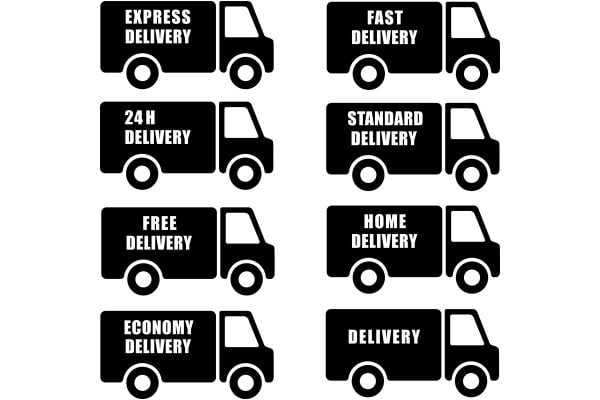With a new Prime Minister just a week into his job and flying around the country as if he was on a election campaign trail, Brexit is well and truly back on the agenda. Boris says he isn’t messing about and, unless an acceptable deal can be put together, he’ll lead the country out of the EU with a no-deal divorce with hard Brexit barriers on the 31st of October.
Boris is interesting, known as a buffoon he twice beat the incumbent Ken Livingstone to become Mayor of London and all things being equal made a pretty good fist of running the capital. The question is can he run the country and even more tricky can he bring together a cross party consensus and get obstinately remain MPs who are being purposefully awkward to vote Brexit through Parliament. There are so many calls for second referendums etc (mainly from MPs who don’t want to leave so hope we can get a different result) that this does seem unlike.
Who knows what will happen however, so today Dan Ennor, Commercial Director at Global Freight Solutions (GFS) takes a look at the almost inevitable hard Brexit and what you can do to prepare:
Get ready for the hard Brexit barriers
A hard Brexit is [almost] inevitable. And retailers need to be prepared before it hits in October 2019. A strong Brexit strategy for retailers all boils down to preparation. However, many businesses are still unsure how hard Brexit barriers will impact them and the changes they’ll have to make as a result. But, how can companies plan for what they don’t know?
GFS isn’t new to Britain’s exit of the European Union, and has been working with its customers for the last 12 months to ready them for a hard Brexit, in fact most of our customers say they feel ready for Brexit. That’s why I’ve decided to identified the three main trade barriers that a hard Brexit will likely bring about, and the role retailers and their delivery partners play in addressing each issue.
1. Procedure and documentation
I have no doubt Brexit will surely see the end of free trade movement in the EU for the UK, and when that significant change occurs, alterations to paperwork and procedures will follow. Reforms to trading will be a blow to unprepared retailers and their delivery companies, both practically and within documentation. Post-Brexit legislation will mean they need to update their processes in order to be compliant depending on the EU country they’re delivering to. With that in mind, retailers need to ensure the delivery companies they work with go paperless with their admin to prevent costly clerical errors.
Following the introduction of laws and regulations, there will be plenty of red tape, and storing this information on paper will create a logistical nightmare for organisation and compliance. By adopting a paperless clearance system, expensive delays caused by misreading handwritten customs documentation are avoided. Submitting documents electronically to customs also eliminates the need to print and manually attach them to shipments, saving paper, time and hassle.
It’s also important for retailers to take note of some of the extra information they’ll need to provide at customs, post-Brexit. For example, customers will need to provide a European Union Registration and Identification Number in order to ship to the EU versus just a UK VAT number. And this will need to be checked and enforced to prevent failed deliveries. An 8 or 10-digit HS code will also need to be supplied to support efficient customs clearance and enable accurate duty and tax calculations are added for all products.
2. Supply chain delays
Once we’re hit with a hard Brexit, when trading with EU nations retailers will notice additional border checks, and major delays to their supply chain. This is something that needs to be built into every delivery company’s forecasting going forward.
Above all, communication is key. Operating transparently will ensure your consumers receive order notifications, keeping them fully informed throughout the process. This will become increasingly important during the early stages of a hard Brexit, when the concept is new to everyone. Retailers will need their delivery providers keep them abreast of how long a delivery’s going to take in real-time, so they can set expectations with shoppers accordingly and ensure customer satisfaction doesn’t suffer. Further to that point, ecommerce businesses will need to adapt their delivery promises on their website, as opposed to simply updating customers via SMS. This needs to be calculated accurately so retailers aren’t made to seem dishonest or ill-informed.
Furthermore, delays in the supply chain, caused by custom checks, will lead to retailers being forced to hold more stock in their supply chain than they’re used to. This will have a direct financial impact on those businesses, who’ll either need to expand storage capabilities or hire more staff to cope with the increased volume of stock.
3. Totally transparent duties and taxes
The most obvious, and perhaps well-documented barrier that Brexit will impose on delivery companies and retailers, is the duties and tax added to product prices depending on the shipping destination. With extra costs now attached to trade goods between EU countries, the overall cost of delivery will go up, and it’s on retailers and their delivery provider of choice to consider who’ll pay that extra fee.
With the cost of delivery in the EU rising, delivery companies will likely need to reflect that in their price, so the added cost doesn’t fall to them. That means that duties and taxes will likely be passed onto retailers, and retailers will inevitably be forced to pass that fee to customers, rather than absorbing it themselves. What will be important in the infancy of new duties and taxes for EU trading, is transparency across the board while everyone gets used to the transition.
Most importantly, ecommerce retailers will need to communicate these new duties and taxes to consumers at the point of checkout so they’re aware of the charge prior to, and at purchase. Unexpected fees will simply lead to cart abandonment worsening or goods being refused at the border. In the grand scheme of things, duties and taxes will make UK retailers less competitive versus those based in the EU, and that will directly impact on export revenues. Something for delivery companies to be wary of as they plan ahead.
Can you really prepare for Brexit or is it a waste of time?
The uncertainty generated by an unresolved Brexit has led many businesses to believe they can’t possibly plan for the future, but that’s not true. In fact, the route to success in a post-Brexit world for retailers, is for those retailers to prepare ahead of time. What should be abundantly clear is that the choice of delivery provider for retailers, will impact their strategy, and ultimately their success. At GFS we know for certain that trading in the EU will change, and this will directly hit retailers’ delivery process. However, only by retailers and their delivery providers being aware and acting on these changes before they hit, can they best prepare their businesses to minimise disruption.










2 Responses
Ready & waiting….
Theres a whiff of millennium bug style hysteria about
where who and what are going to do all these extra customs checks
Is the eu just going to magic up all the additional resources and man power
Are they going to aid and abet crippling the german car industry